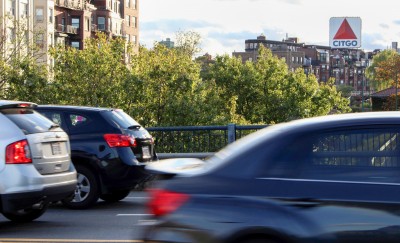
Boston will begin exploring the use of autonomous vehicles over the next several years as part of Go Boston 2030, a transportation planning initiative to enhance mobility, according to a Wednesday press release.
The City of Boston is partnering with the World Economic Forum, the “International Organization for Public-Private Cooperation,” according to its website, and it will be working this year to create policy recommendations and use on-street testing to advance self-driving transportation in Boston, according to the release.
Boston Mayor Martin Walsh said in the release that the program aims to develop “safe, reliable and equitable” transportation for residents.
“With our start-ups and educational institutions, Boston is a leader in technology, robotics and innovation,” Walsh said in the release. “Together with our partners, we know the City of Boston is ready to lead the charge on this this transformative technology.”
Autonomous vehicles would serve as an affordable mode of public transportation and reduce congestion, road accidents and gas emissions, the release stated, as the vehicles operate on electric power.
Peter Furth, a civil and environmental engineering professor at Northeastern University, said self-driving vehicles will be relevant in less densely populated areas, where public transportation is scarce.
“In dense parts of the city, there’s so many people traveling at the same time and rush in the same direction, that you can build the subway and still fill the subway cars,” Furth said. “But as the destination becomes more scattered and are less dense suburbs, it’s hard to have any viable public transportation because you can only get a few people into a vehicle at a time, and if you have to pay the driver, then it’s just a huge money loser.”
The city hopes on-street testing is completed by the end of this year, said Audrey Coulter, a spokesperson for the mayor.
“Throughout the year we’re also going to be developing policy recommendations through this partnership as well through focus groups,” Coulter said.
According to release, Boston was selected by WEF’s City Challenge as its lead partner to envision future mobility plans.
John Moavenzadeh, the WEF’s head of mobility industries, said in the release that Boston has been displaying ardent interest and a profound track record in transportation.
“Our advisory board, which is a cross-industry group of public and private sector experts, overwhelmingly felt that Boston provided the best opportunity for learning and advancement of new models of mobility,” Moavenzadeh said.
Several Boston residents expressed varying views about the safety and reliability of self-driving vehicles.
Angela Rupinen, 24, of Fenway, said she supports having self-driving cars on the streets, as long as they are properly tested.
“I’d say go for it, since I know Google’s had self-driving cars, and they’ve proven to be safer and more effective than having people drive cars,” she said. “People drive aggressively; people drive stupidly, sometimes. So if we have safe self-driving cars, … it would probably make our streets safer.”
Shari Buckley, 28, of Mattapan, said having driverless cars would not ensure safety, since human senses still serve an essential need in vehicles’ mobility.
“There’s a lot of traffic already, and there’s a lot of people who aren’t really good at driving on the road,” she said. “They haven’t been doing that great of a job, but I don’t think I fully trust technology to safely get everybody in and out of Boston.”
Linh Tran, 27, of Brighton, said recent fatalities caused by self-driving vehicles have led to skepticism over their safety.
“Model-wise, they look nicer, but I don’t think they’re safer,” she said. “Some of them failed some of the transmission tests, and some of the materials that they use to make the car, it seems like the metal is thinner, so when the car crashes, it breaks the car even quicker and easier.”






















































































































